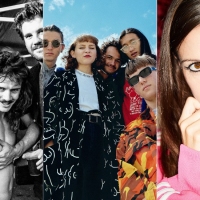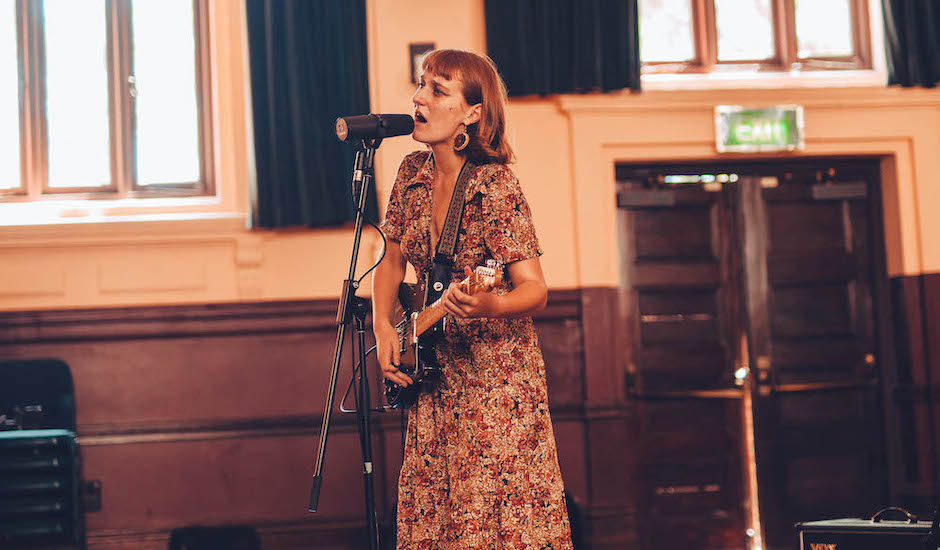 Southern River Band, Demon Days + more: Meet your In The Pines 2020 lineupThe West Australian live music favourite returns to Somerville Auditorium on Easter Sunday, April 12th.
Southern River Band, Demon Days + more: Meet your In The Pines 2020 lineupThe West Australian live music favourite returns to Somerville Auditorium on Easter Sunday, April 12th.

WAM's Fair Play Report paints a picture for women in West Australian music
The report, which analyses the place of women, trans and non-binary music industry workers, is released alongside International Women's Day.
With International Women's Day arriving on the Sunday just gone (March 8th), the music industry (predominately women, trans and non-binary members in the music industry) takes a moment to analyse their place within the industry and how times are changing over the years, whether it be on the live stages - where year after year, women are being underrepresented on festival lineups - or behind-the-scenes, in roles from label managers to artist managers to sound engineers to stagehands.
triple j Hack's Ange McCormack runs an annual piece By The Numbers, which places emphasis on the gender gap in music on a national level, and tracks how it changes over the years. According to McCormack, the gender gap is slowly narrowing in 2020, with festivals steadily increasing the representation of women, non-binary and trans performers on stage and more women visible behind the scenes as independent label owners, for example. However, there are problem areas too, particularly when it comes to music awards like the ARIAs, national radio play, and board members; all those figures decreasing in the year just gone.
Also released last week ahead of International Women's Day was the WAM Fair Play Report, which takes a similar situation but narrows the scope to just within West Australia, obtaining data from the West Australian music industry and placing it side-by-side with recollections from mostly female - but also male - experiences within the music industry, and the gender bias upheld within its systems. Worked on by Dr Christina Ballico and Jessica Willoughby, the report - two years in the making - is an eye-opener to those who might've second-guessed the music industry's gender bias (for some reason), and comes with some interesting findings, most significantly:
- Female industry practitioners are ten times more likely to experience gender discrimination than their male counterparts.
- 67% of females believed a female mentor would improve their career development and 65% identified that female role models would improve their career development (only 25% of males identified having a male mentor as an opportunity to improve career development).
- Women were more than twice as likely as men to agree that flexible caring hours would help to further develop their music careers.
- While 73% of consumers are ‘used to’ the male dominance of the live performance space, there is a strong desire (94%) for there to be more women performing live.
- Female music consumers are almost eight times more likely to experience sexual harassment or violence at live music events than males, and on average, do not feel completely safe at live music events.
- Venues recognised that they needed to be proactive in having gender parity in their live performance bookings, noting that this has not always been the case for their line ups.
- Overall the WA music industry is viewed by 67% of consumers as being gender-inclusive and according to 78% of consumers is becoming more inclusive. Despite this positive response, strong negative opinions about inclusivity exist, which demonstrates that work is still required in order or the sector to be truly gender-inclusive.
- Live music venues were identified as being the primary space in which gender discrimination and harassment occurred for both industry practitioners and consumers. This was despite venues having a zero-tolerance policy for violence and being proactive in ensuring gender parity in their staffing as well as providing a safe environment for attendees and staff.
Taken straight from the report (which you can find here), the significant findings above paint a picture on the West Australian music industry and its changing gender disparity, whether it be the areas where positive results are being found, or in areas where more work obviously needs to be done - specifically, the report suggests, in live music venues, where "female music consumers are almost eight times more likely to experience sexual harassment or violence at live music events than males, and on average, do not feel completely safe at live music events."
The report also comes with a stack of recommendations, which aim to continue positive results in closing the gender gap and encourage a more inclusive music industry. Included in those, is establishing a database of female, trans and non-binary music industry workers and artists within WA; female-focused mentoring and engagement programs; female-focused networking and industry events; increased female presence at conferences and workshops; increased female-showcasing events; gender-inclusive compilations and releases; zero-tolerance public awareness campaigns at live music venues, and more.
As mentioned, you can dive into the full report here. Stay tuned to see if - and how - things change in the years ahead.
Follow WAM: FACEBOOK
 Southern River Band, Demon Days + more: Meet your In The Pines 2020 lineupThe West Australian live music favourite returns to Somerville Auditorium on Easter Sunday, April 12th.
Southern River Band, Demon Days + more: Meet your In The Pines 2020 lineupThe West Australian live music favourite returns to Somerville Auditorium on Easter Sunday, April 12th.
 A touring bingo rave with Nikki Webster and Rebecca Black in 2020's most cooked eventWhat more can you want that a high-energy bingo rave, hosted by Alex Dyson, and featuring two of the 2000s' most decisive pop queens?
A touring bingo rave with Nikki Webster and Rebecca Black in 2020's most cooked eventWhat more can you want that a high-energy bingo rave, hosted by Alex Dyson, and featuring two of the 2000s' most decisive pop queens?